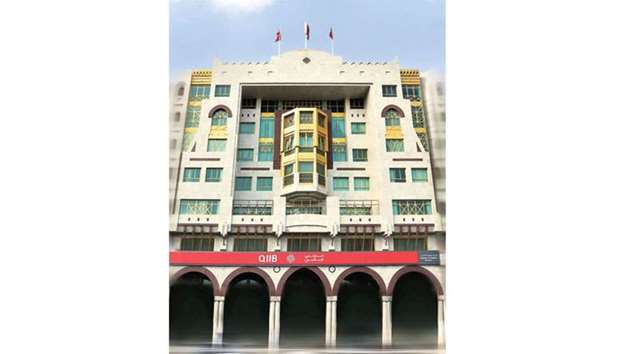QIIB announced that Moody’s and Fitch Ratings have affirmed its ratings at ‘A2’ and ‘A’ respectively, which reflects the bank’s strong financial position and its ability to confront challenges and market factors.
On QIIB’s ratings at ‘A2’, Moody’s said that it is based on several considerations, one of which is that the bank maintains high levels of liquidity and a strong capital base. Additionally, QIIB is one of the oldest Islamic banks in Qatar and has a strong client base, especially in the retail sector.
Fitch explained that “The affirmation of the bank’s Viability Rating (VR) and the removal of the Rating Watch Negative (RWN) reflect Fitch’s view that immediate risks from the diplomatic crisis to the bank’s overall standalone credit profile has reduced.
The bank’s funding profile has generally stabilised from the back of outflows of nondomestic funding and the Qatari authorities have continued to provide funding support. In addition, there has not been any material impact on the bank’s performance metrics to date.”
On the bank’s rating, QIIB chief executive officer Dr Abdulbasit Ahmad al-Shaibei said, “This strong rating is a confirmation of the strength of the Qatari economy and its ability to overcome various types of risks.
It is also an evidence of the fact that the prudent government measures that were taken in the banking and other sectors, have given decisive results in maintaining the stability of the Qatari economy and continuous growth, as well as a continuous implementation of various plans, programmes and projects as planned to reach the desired development objectives.”
“At QIIB, we work actively within Qatar’s banking system and implement our strategy, which focuses on the local market with its various opportunities and projects, whether they are large such as infrastructure projects or small and medium ones. In addition to being on the funding side, it is a moral commitment towards the economy of our country in its various sectors at the same time. Thereby, we are contributing to the development efforts and achieving the vision and guidance of our leadership, especially those related to the Qatar National Vision 2030”.
Dr Al-Shaibei said, “The ratings of Moody’s and Fitch clearly indicate that QIIB has a solid financial position, confirmed by its financial results, as in the third quarter of 2017, we managed to achieve a growth of 5.1%. The various budget figures of the bank confirm our ability to achieve further growth based on the quality of our finance portfolio on one side, and the important opportunities of the local market on the other”.
QIIB CEO noted: “The focus of the bank’s activities on the Qatari market did not let it miss out on investment opportunities outside of Qatar, which were based on rigorous feasibility studies.
The bank’s last investment in the Kingdom of Morocco was through the participatory Umnia Bank, which was officially launched in a number of Moroccan cities recently. Umnia Bank is the result of a partnership among QIIB, CIH and CDG. QIIB hopes that the participatory Umnia Bank will be a gateway for our future expansion in Africa”.
Dr Al-Shaibei expressed his confidence that the period ahead will witness more growth opportunities for the banking sector, especially with the ambitious 2018 budget announced by the government, where the figures confirm that the Qatari economy is stronger than all challenges it faces and capable of achieving the targeted growth figures leading to further prosperity for our country.
QIIB was established in 1990 as the second Islamic bank in Qatar and is currently the third largest Islamic bank in terms of assets and market capitalisation. The bank started operations in 1991 and is listed on the Qatar Stock Exchange.
Business / Business
QIIB high ratings by Moody’s, Fitch reflect Qatar’s economic strength, says Al-Shaibei

QIIB headquarters at Grand Hamad Street. QIIB is one of the oldest Islamic banks in Qatar and has a strong client base, especially in the retail sector.
